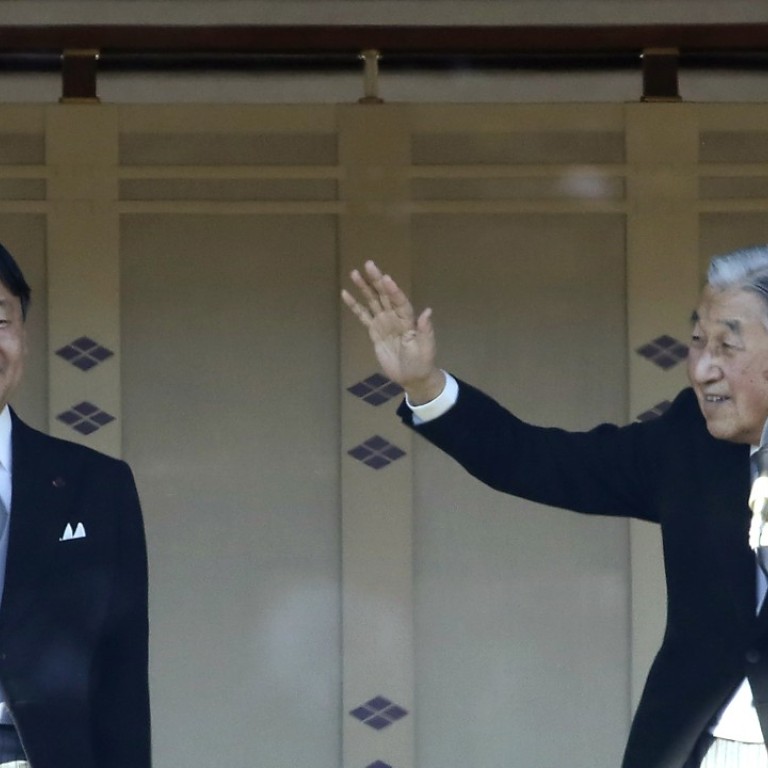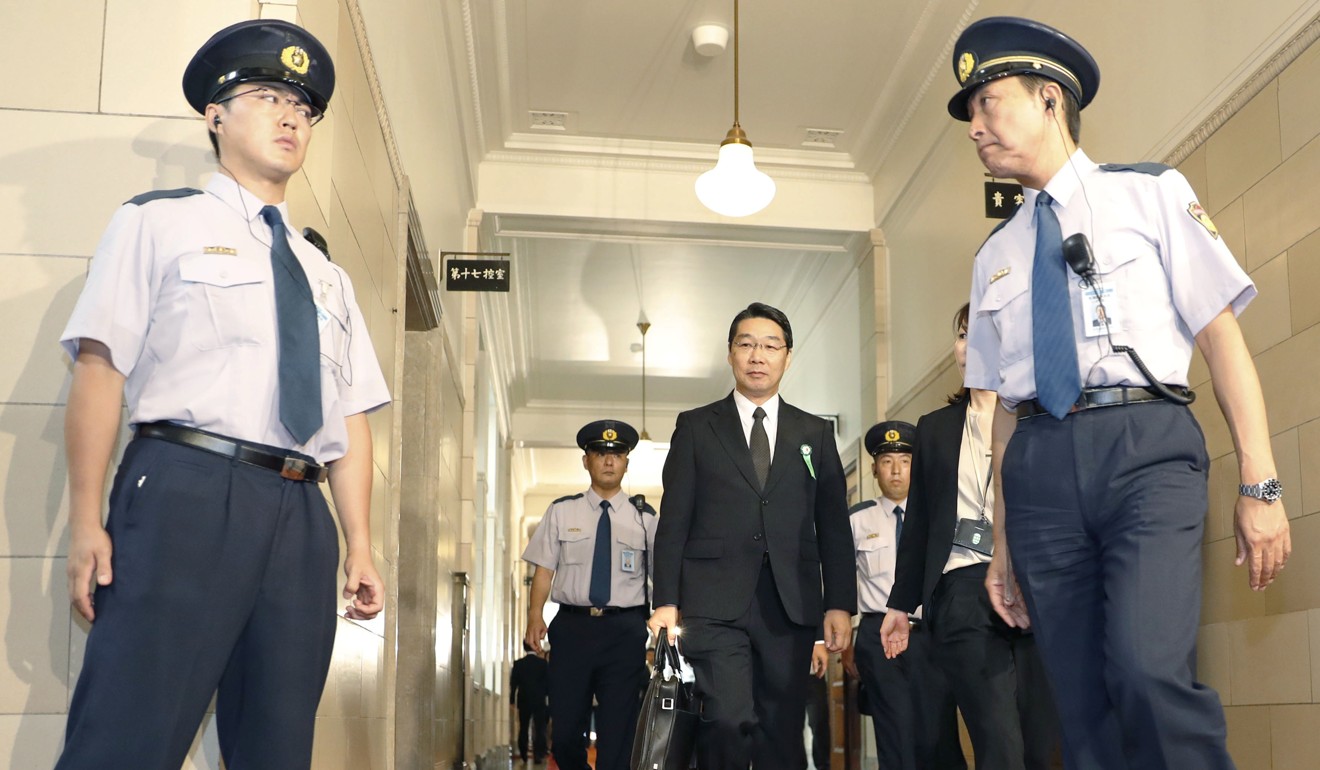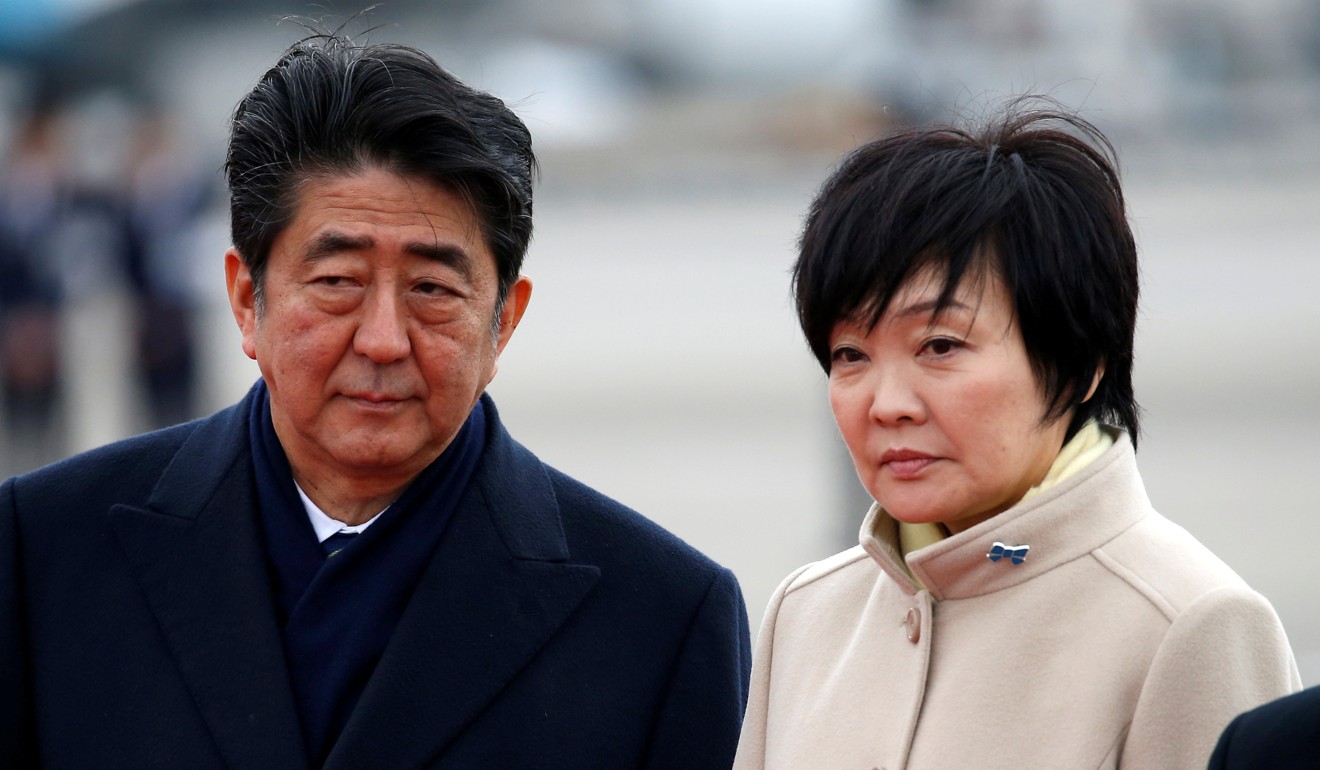
Will Japan pardon its bad bureaucrats when Emperor Akihito abdicates?
The last pardons were granted in February 1989 to mark the death of Emperor Hirohito, with criminal punishments struck down or commuted, while bureaucrats had their penalties waived
The Japanese government is reportedly drawing up plans to issue amnesties to potentially dozens of ministry bureaucrats punished for wrongdoing to mark the ascension next year of Crown Prince Naruhito to the position of emperor.
There has been no official statement from the government about the plans which have been reported by some Japanese media including the Yomiuri and Mainichi newspapers.
Analysts warn, however, that there will inevitably be a public backlash if Prime Minister Shinzo Abe’s administration is seen to be pardoning ministry officials implicated in recent scandals that appeared at one point to be on the brink of bringing the prime minister down.
Pardons have been issued to criminals 10 times since the new Japanese constitution was introduced in 1947, Jiji Press reported, although the practice dates back to when bureaucrats were considered to be the direct servants of the emperor.
Emperor Akihito shocked the country in 2016 when he signalled his desire to step down after nearly three decades in the job, citing his age and health problems.
He will be the first emperor to retire – on April 30, 2019 – in more than two centuries in the world’s oldest imperial family.

Akihito’s eldest son, 58-year-old Naruhito, is set to ascend the Chrysanthemum Throne a day later.
The last pardons were granted in February 1989 to mark the death of Emperor Hirohito, with criminal punishments struck down or commuted, while bureaucrats had their penalties waived.
Individuals who were punished with pay cuts saw their previous incomes reinstated and were eligible to receive regular pay increases that they had missed, while official warnings were expunged. Bureaucrats who were fired for their actions, however, were not returned to their positions.
Japan’s richest minister Taro Aso returns year’s salary as heads roll in cronyism scandal
There appears to have been few objections raised when the amnesty was last carried out, but with the government’s scandals still fresh in the mind of the public here, there would be a significant outcry this time, according to Jun Okumura, a political analyst with the Meiji Institute for Global Affairs.
“The public, of course, will not be happy if the government starts pardoning bureaucrats who were in the headlines only a few months ago,” he said.
“The government may choose to be more selective than it was in the past if they fear that they are going to be accused of an abuse of power by pardoning these people.
“My guess is that the government will wait to see the scale and power of any public outcry before proceeding with some of the more controversial cases.”

Nobuhisa Sagawa, the former head of the National Tax Agency, could be among the officials pardoned. Sagawa and 20 other officials of the Ministry of Finance were punished in early June with pay cuts and formal reprimands for tampering with documents and destroying others connected to the sale of public land to the operator of the Moritomo Gakuen school in Osaka.
The land was sold at a fraction of its real value after the operator claimed that it needed to be decontaminated and it has been pointed out that Abe and his wife, Akie Abe, were both supporters of the institution.
Official linked to PM Shinzo Abe’s cronyism scandal found dead, Japanese media reports
The officials did not, however, face criminal charges and kept their jobs.
Similarly, Kihei Maekawa, a senior official in the education ministry, was punished for assisting retiring bureaucrats to find well-paid executive positions with the sector they had been tasked with regulating – an illegal arrangement known as “amakudari” or “descent from heaven”.
Other incidents include officials at the Ministry of Defence who failed to confirm the existence of logs kept by members of the Self-Defence Forces stationed in Iraq to provide reconstruction help.
Abe, 63, who has been in power since late 2012, and could become Japan’s longest-serving premier.
However, the scandals have dented his popularity.
“Scandals such as these are the reason whey there has been such a rapid turnover of prime ministers in the past,” said Kyle Cleveland, an associate professor at the Tokyo campus of Temple University.
“This amnesty is significant because it underlines how the government effectively pardons itself, which is the epitome of elite politics.”
Additional reporting by Agence France-Presse and Kyodo

